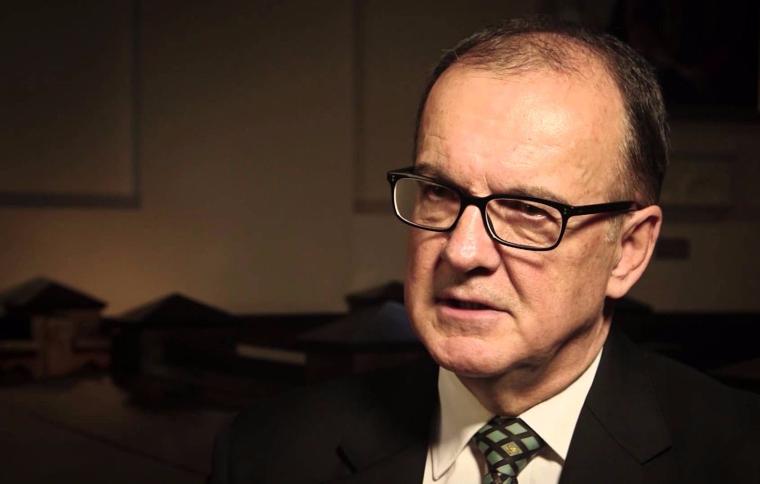In a response to a question at the Senate Estimates Committee, NBN Co has failed to provide justification for chairman Ziggy Switkowski’s assertion that the National Broadband Network could be sold for more than $50 billion after the network rollout has been completed.
NBN Co also failed to explain why Dr Switkowski would make this claim when the potential for government to make a write down has become a factor in the upcoming federal election.
NBN Co’s actions in the immediate run-up to the last federal election were unacceptable and it is important that the NBN Co board does not take any action in the next four months that could be politically motivated.

Speaking at a Senate Estimates hearing last October, Dr Switkowski said “so, while there is downside risk, the current valuation is supported by our four-year projected numbers. Unlike in most corporations, they are public. So people can look at them, they can challenge them and they can model around them and get the numbers that they get. I could certainly generate and do generate figures around $50 billion for the value of this enterprise in the early 2020s.”
Based on this confident statement, it would be assumed that NBN Co and its Chairman would be able to provide a reasonable response to the question put to NBN Co asking if it has “received external advice from any advisory firm, investment bank, market analyst, or suitably qualified professional, to support the chairman’s assertion that there are scenarios where the multi-technology mix could achieve a sale value of $51 billion?”
The question went on to ask that if it had received external advice, then NBN Co should name the organisation or individual that had provided the advice, and if not could “the NBN Chairman please present his analysis to illustrate how he generated figures to assert a $50 billion sale value?”
It should be remembered that statements by board members that might affect the share price of a publicly listed company are subject to rules and can lead to investigation by the Australian Securities and Investment Commission (ASIC) with a view to penalties being applied.
In this case, NBN Co is a government business enterprise. However, board members should not presume that they’re held to a lesser standard than their contemporaries in the private sector.
In response to the questions put to NBN Co on notice, the Senate Estimates Committee was told that “No. NBN Co has not sought advice from any organisation on matters of sale valuation or privatisation.”
In response to the request for Dr Switkowski’s analysis that led to his statement, NBN Co provided a vague response.
“Calculating the value of NBN Co would involve making a range of assumptions to be used in various valuation scenarios. These scenarios would be modelled based on the projections of future revenues and cash flows outlined in NBN Co’s Corporate Plan 2019-2022 generating valuation outcomes in excess of $50 billion, depending upon the ownership and structure of the organisation as well as the regulatory and competitive environment.”
It appears that Dr Switkowski’s claim was little more than an unsubstantiated thought bubble.
While this is surprising, Dr Switkowski is not the first senior representative from NBN Co to trip up at the Senate Estimates committee when responding to a question about NBN Co’s future value.
In effect, what Dr Switkowski was trying to do was to argue that there would be no need for a write-down.
“I can rule out a write-down, this is my personal view, any consideration on the value of the NBN will await until the business moves into a relatively normal, conventional mode, which will happen when we finish the build in 2020, we compete the conversion of all households and business in 2021, we turn cash flow positive and then whoever needs to make the judgement will make it then,” he said.
Whilst Dr Switkowski’s view is for discussion on a possible write-down to be delayed until after the NBN rollout is completed, there is a federal election in May, and voters would reasonably expect the political parties to put forward broadband plans.
A key aspect of the broadband plans of all major parties will be NBN Co’s future ownership, and whether or not government will write-down the value of the NBN to boost its bottom line prior to a sale.
In a media release, the shadow communications minister Michelle Rowland and shadow finance minister Jim Chalmers stated that “following 92 days of attempting to circumnavigate its chairman’s train of thought, NBN Co has failed to produce any evidence to support the chairman’s claim that the NBN could achieve a market sale value of $50 billion.”
“Given the significant difference of opinion with reputable analysts, the chairman either needs to support his statement with evidence or correct the public record.”
In the coming months, it is vital that NBN Co and its senior management be very careful to get on with the job and to stay out of the political process in the lead-up to the May federal election.
Mark Gregory is an Associate Professor in Network Engineering at RMIT University and is the Managing Editor of the Australia Journal for Telecommunications and the Digital Economy.
Do you know more? Contact James Riley via Email.

